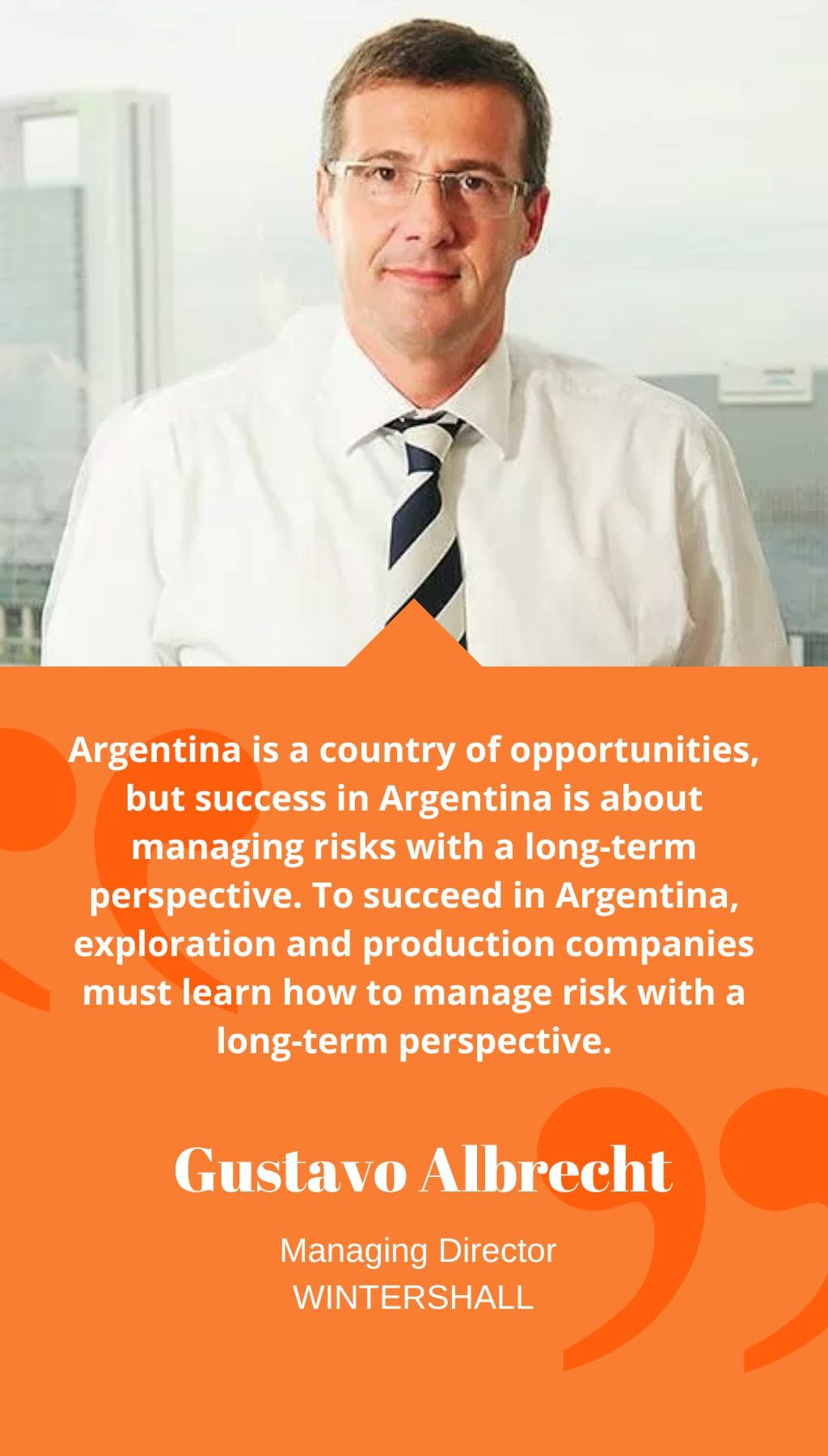
- Argentina | 17 May 2017

Can you discuss Wintershall’s major milestones since 2010?
Since 2010, we have continued to invest in our legacy assets in Argentina, specifically by developing the vast offshore resources in Tierra del Fuego. In 2010, we obtained the final investment decision for our flagship project in Argentina, Vega Pleyade, a billion-dollar offshore gas field that will produce between seven and eight million cubic meters of gas per day. We also began exploring two blocks in the south of Mendoza in 2012. In partnership with Gas y Petróleo del Neuquén (GyP), we have been exploring the potential and commercial viability of shale in Neuquén and have acquired a 50% p.i. in Aguada Federal block, our first operated asset there. We are also participating in the 12-well pilot in Aguada Pichana block together with our partners Total, YPF, and Pan American Energy.
What motivated Wintershall to continue operating and investing in Argentina?
We have decided to continue investing in Argentina’s oil and gas industry for three main reasons. Firstly, we are convinced of the potential of the sector in the country. Secondly, we have chosen Argentina to develop our center of excellence for unconventional operations, which, in the future, could be used in other regions where we operate globally. The third factor that has contributed to our decision to invest in Argentina is the massive amount of contingent resources in Vaca Muerta.
Can you discuss Wintershall’s experience with government officials in the provinces where the company operates?
We operate in the Neuquén and Mendoza provinces, and in both provinces, the government has been extremely professional and supportive of our investment plans.
What have been the greatest challenges associated with operating in Argentina?
One of the biggest challenges we face in Argentina is the limited number of service providers. Before the most recent fall in oil prices, getting a rig into the Neuquén Basin was challenging. Specifically in the case of Vaca Muerta, one of the main drivers to achieve profitability in this new emerging play is related to costs. When comparing D&C cost in the US with Argentina, we realize that there is still a long way to go. Materializing the massive potential of Vaca Muerta would require an effort from all stakeholders (service companies, government, unions, operators, etc.) to reduce dramatically the current cost structure and to gain efficiencies.
What impact has Argentina’s Plan Gas had on Wintershall’s investments in Argentina?
We subscribed to the Plan Gas in 2013, and it has allowed us to pursue a much stronger investment portfolio in Argentina.
Do you have a final message?
Our Argentine subsidiary has transformed from a non-operator to an operator, joining the ranks of our various outposts around the world. In the next five years, we hope to see investment in Argentina’s oil and gas industry reaching the critical mass needed to make Vaca Muerta a commercial project. Argentina is a country of opportunities, but success in Argentina is about managing risks with a long-term perspective. To succeed in Argentina, exploration and production companies must learn how to manage risk with a long-term perspective.














